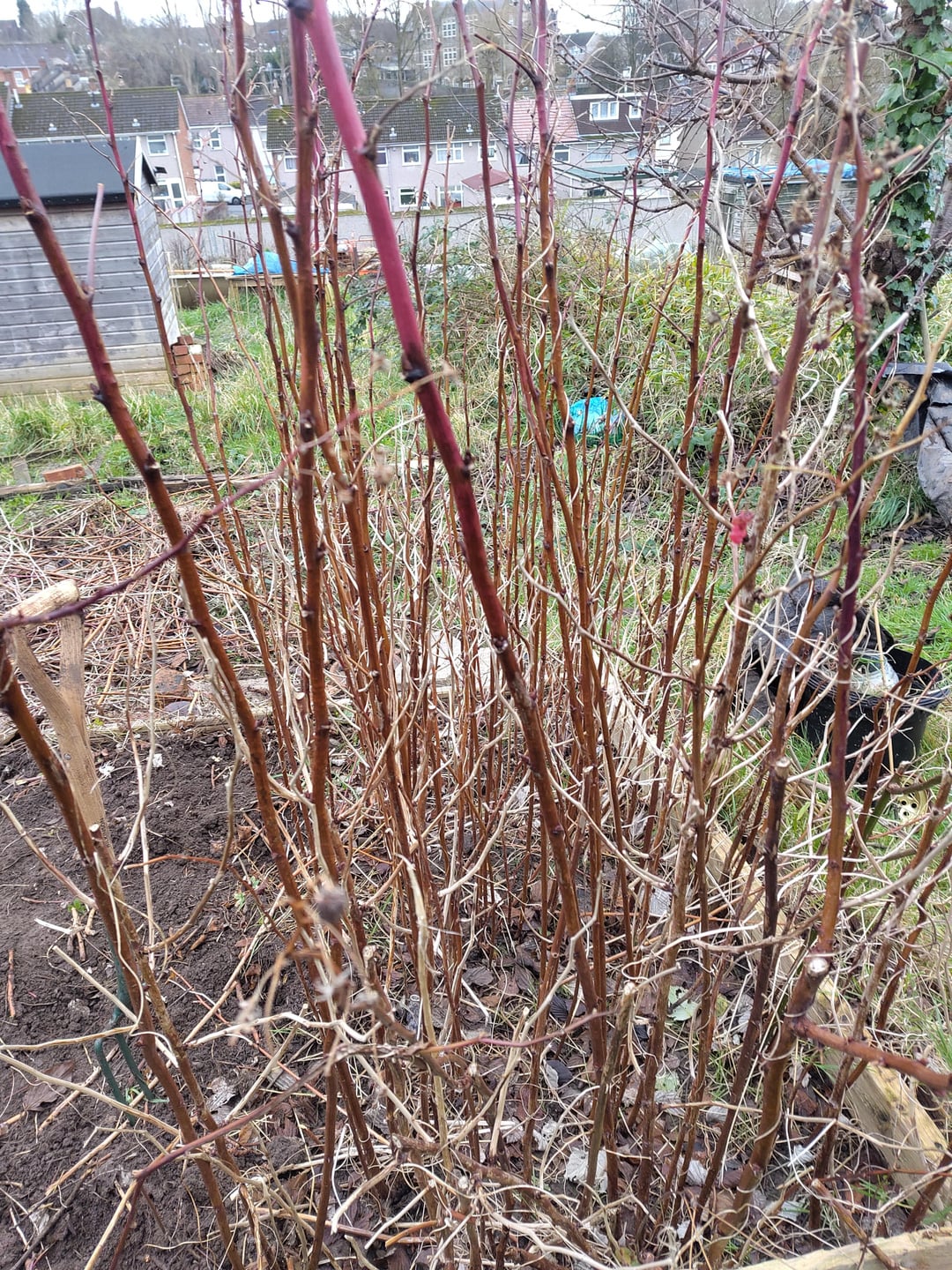



Hallo zusammen! Ich habe gerade ein Grundstück (im Vereinigten Königreich) bekommen und darauf liegt ein Haufen Himbeerstangen, von denen ich einige behalten möchte. Ich habe nachgeschaut, um wie viel ich sie zurückschneiden muss, und meines Wissens hängt es stark davon ab, ob es sich um Herbst-, Sommer- oder doppeltfruchtende Stöcke handelt.
Ich habe Bilder der Stöcke beigefügt, weiß aber nicht, wie hilfreich das sein wird. Ich habe keinen Kontakt zum Vorbesitzer – ich wäre für jeden Rat sehr dankbar! Danke!
Von: secondofly

14 Comments
wait until the summer
A gardening friend of mine told me there is actually no difference and it just depends on how far down you chop them over winter. So the ones you have will fruit in summer, if you chop some down to foot off the ground then they will fruit in Autumn. Any new shoots will be summer fruiting on their 2nd year.
Mine fruits in both spring and autumn. I wish I knew what variety it is.
I am never sure so cut half back every year. Both lots seem to fruit 🤷
I cut mine right back and get good, strong, new canes with lots of fruit. Halfway and they fruit earlier but are not as bountiful.
Mine fruits whenever it feels like it which at the moment is 2 raspberries in June and 2 in September
If the cane has fruited then cut it back is my general rule of thumb, I’m trialing cutting my autumns to just below their last fruiting spurs but the summers I cut to the ground
Have you tried asking the folks with nearby allotments?
Probably a mixture if whoever planted them thought about it.
Hey, I have raspberries in my garden that fruit all the way from mid spring to autumn – as a general rule, I prune dead canes at the end of the year once leaves have dropped.
How to tell which ones are dead? The living ones should have buds up most of their length and should feel ‘alive’ when you try to bend or break them, the dead ones will be mostly or entirely bud-free and snap easily under pressure. Trim the dead ones right down to the ground, leave the live ones as-is, perhaps take off some of the dead limbs.
Not sure if that’s the ‘proper’ way, but it works for me and I get a good crop off them
Summer fruiting ones fruit on canes grown in 2024.
Autumn fruiting ones will grow their canes in 2025.
If those are summer fruiting the old canes will snap satisfyingly. They will look different to the fresh canes that grew last year.
If they are Autumn ones they are all to be cut to the ground.
[https://www.youtube.com/watch?v=O42mzwxPVc8](https://www.youtube.com/watch?v=O42mzwxPVc8)
If your stems have evidence of having fruited or flowered this year, chop em down. If they look like bare stem that haven’t fruited coming off the same plant, tie it in. Those ones are your summer varieties. If they’ve fruited and haven’t got any non fruiting stems coming off the same plant you’ve got autumn variety.
You should prune them in late Feb/early March. The canes that snap off easily should be removed. Those were fruiting canes from last year and they’ll be brittle because they’re dead. Canes that don’t snap easily should be left alone. Those will come back and bear fruit this summer or fall.
Summer fruiting raspberries will send their shoots up one year and flower and fruits next year so they won’t have the remains of the flower / fruiting structures on them and will just be plane canes. Any canes with old flower/fruit heads can be removed. Old canes will be dark and wood like and can be cut out.
Autumn fruiting raspberries throw up shoots in spring, flow in summer and fruit in autumn. You can cut back all the canes once the plants are dormant.
However – I have a summer fruiting raspberry with a personality disorder and will act a bit like a two timer -. It’s spring shoots may produce an autumn crop – I prune these stems back to below where the fruit were for a summer crop next year.